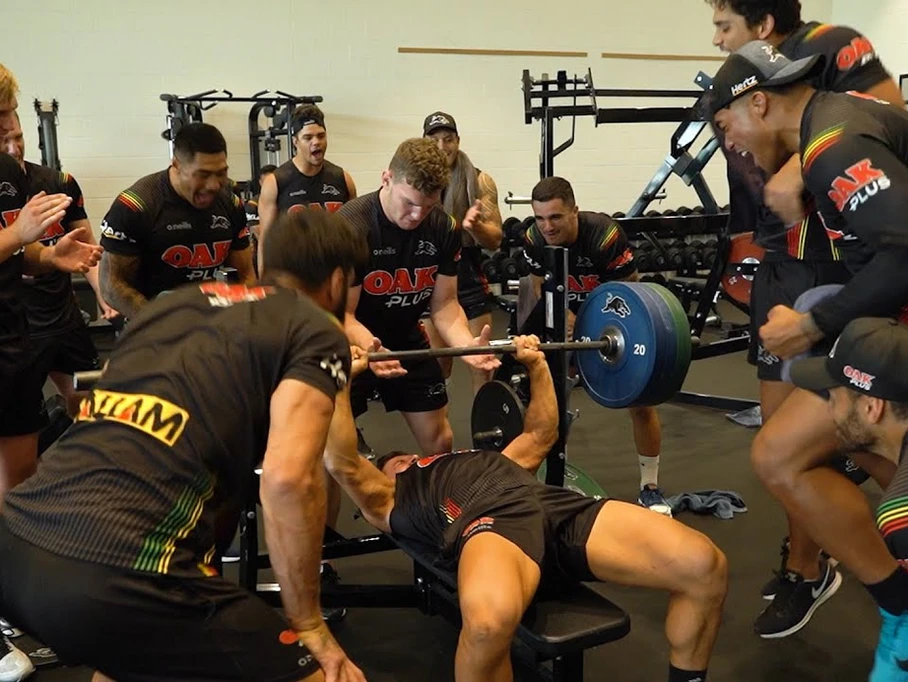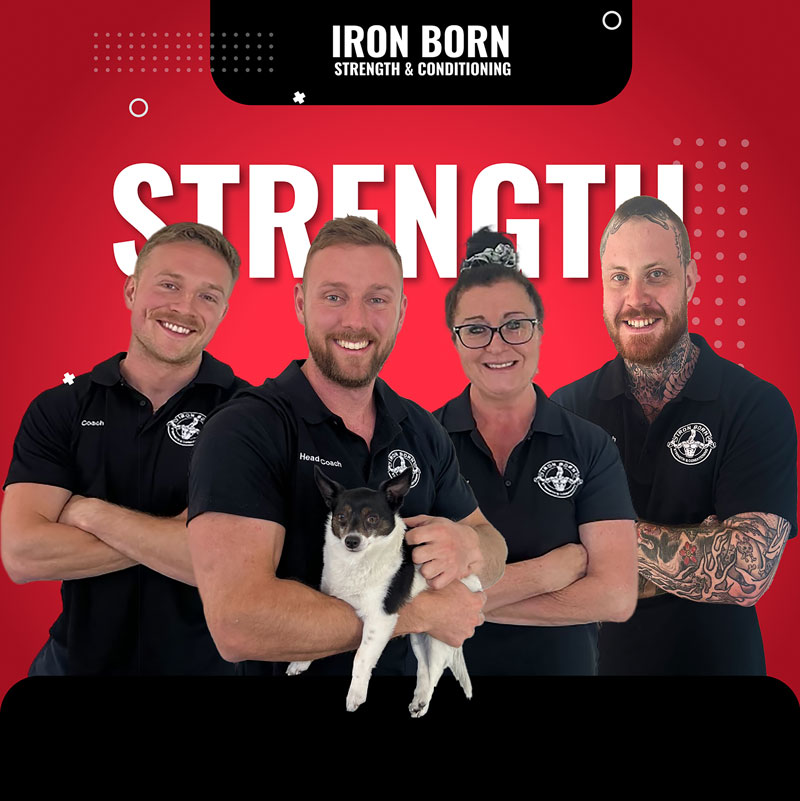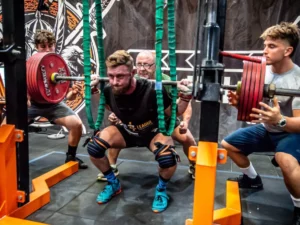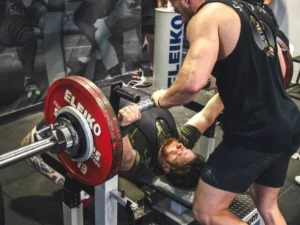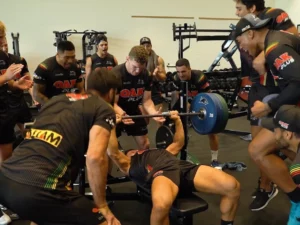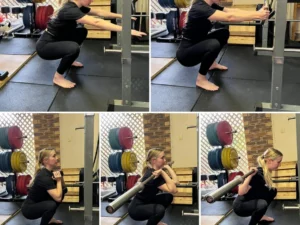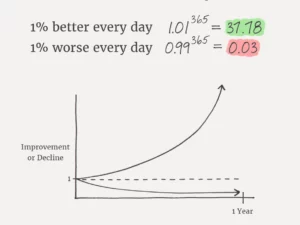What exactly is an off-season?
Most athletes, if not all, don’t compete all year round. Generally, ball sports such as basketball, soccer, rugby etc. only compete in their sport for roughly 6 months per year. The other 6 months is spent on fine tuning their craft with a more relaxed atmosphere. Typically, they will use this time to address some weaknesses that may have developed during competition season.
For example, rugby players require such high levels of fitness to support the amount of time spent running on the field that they often lose some of their bodyweight and strength during competition season. This is because they can’t risk pushing their strength limitations in the gym due to the amount of accumulative fatigue already being developed on the field, and in their rugby-specific training. These are the things that are most important for them at this time, it doesn’t particularly matter how much they can lift in the gym – as long as they win their games and remain uninjured.

Once the season has come to an end, players do not need to be able to run as far or as fast as they do during competition season. The goal, then, is to analyse where they can improve to prepare for next season. This right here is called an off-season. This time will be spent on addressing weaknesses developed or noticed during the previous season. Players will start to push their strength in the gym, strengthen their legs and backs, pack on extra mass if required, maybe learn some new skills, and altogether broaden their foundations as an athlete. Any injuries or niggles acquired during the season can now be properly assessed, including addressing the cause and putting practices into place to prevent it happening again.
Why is an off-season so important?
Apart from the obvious physical reasons stated above, having an off-season is also crucial for athletes to prevent them from mentally ‘burning out’ and falling out of love with their sport. Most people don’t realise that even the best athletes in the world do not love what they are doing all year round. The training can be tiresome and grueling, they are spending all their time obsessing about this sport, often even more so than some people focus on their day jobs. They are often eating planned diets to the gram, and have a strict training and sleeping schedule. On top of this, many athletes in the world can’t profit from their sport, and so many also work full-time jobs.
Taking a step back in off-season allows athletes to go out and eat with friends again on weekends, maybe even have a couple of drinks. It allows athletes to go to a late night movie and eat some popcorn without worrying that it’ll effect the next days training or their bodyweight. It allows athletes to refresh themselves and enjoy the other side of a life a little more so when it’s time to knuckle down and push as hard as possible again – they are fresh, ready, and highly motivated.

Now I’m not saying that athletes are or should be ‘lazy’ or ‘unproductive’ during off-season, but they are simply working on different goals. Referring back to rugby, they will still be doing enough running to maintain their base fitness, but they are also striving to improve their weaknesses in the gym and other aspects of their lives. They simply don’t need to be pushing as hard as they were during their competitive season as they can now just ‘train’ without the added fatigue of the actual games and associated stresses that come with it. Simply put, it is the perfect time for athletes to try normalise their lives and enjoy the smaller things a little without having to worry as much about the repercussions for performance.
How does this apply to Strength training/Powerlifting?
As a powerlifting/strength coach and athlete myself, I’ve seen so many athletes want to go too hard, for too long. It ends the same way almost every single time. People make fantastic progress due to their incredible commitment to their training, eating, sleeping and recovery. These incredible results make them highly motivated to keep pushing, but at a cost. They don’t want to fix their squat technique that has started to show some obvious breakdown as new peaks are being reached. They don’t want to “eat out” and risk “ruining” the body composition they’ve spent 6 months reaching in order to make weight for their competition, nor do they want to fix up that niggling elbow that flares up every time they bench press. They might be so close to hitting their goal total that they want to push out one more competition despite what their body or coach is telling them.

The biggest difference for strength athletes compared to other sports, is there isn’t a clear cut on or off-season. There are competitions all year round that you can register for, it is down to the athlete and the coach to decide when and where to compete, and when to take the foot off the gas and breathe a little. Time can be spent addressing the lifter’s health markers and weaknesses instead of worrying about trying to add 5kg to a lift at the cost of an injury/mental burn out in the short term.
Unfortunately, when athletes/coaches do not acknowledge the need for off-season and push too hard for too long, the athlete often ends up losing any desire to lift at all. They don’t want to track food anymore, and they don’t want to follow a program. Every session is a mental grind, and they aren’t really giving their all. This often results in subpar competition results, increased risk of injuries, and a growing contempt for a sport they once loved.
For the reasons explained above it is so important to plan ahead and know when an athlete should be in a “competitive phase” or an “off-season” and to treat both with equal importance.
How is this relevant to general gym goers/novice athletes?
To some, this information will likely seem irrelevant as they just train to put on some muscle, or lose a little bit of fat, and they don’t have a “competitive” season to prepare for.
This may be true to an extent, but from my experience almost every single person in the gym has a goal. Whether it be losing weight, building muscle, increasing strength or aerobic capacity. Every single goal, when executed properly, will have phases to make them maintainable. If you’re in the gym trying to lose some fat, that “cutting period” is your competitive season. You are putting your body through stress, restricting yourself from eating enough food to maintain your bodyweight, as well as training in the gym multiple times a week. When this is the case, your “offseason” is what is known as a “maintenance” period. This is a period where your only goal is to maintain your newly achieved goal and slowly work your food back to a normal level and find a training regime that is very easy and comfortable to commit to. If you continually try to cut without spending time maintaining your bodyweight and making it sustainable, just like an athlete, you will physically and/or mentally fizzle out and ultimately inhibit your long-term goal.

Conclusion
In summary, you can see the importance of an off-season for both world class athletes, and general gym goers alike. Having a period of time designated to fixing weaknesses, and mentally recharging, is essential to being your best in preparation for your next competition phase or progressing toward your long-term goals. This can determine the difference between people who end up succeeding, or falling short and quitting altogether.
Want to work with the Iron Born Team?
Get Started Today

